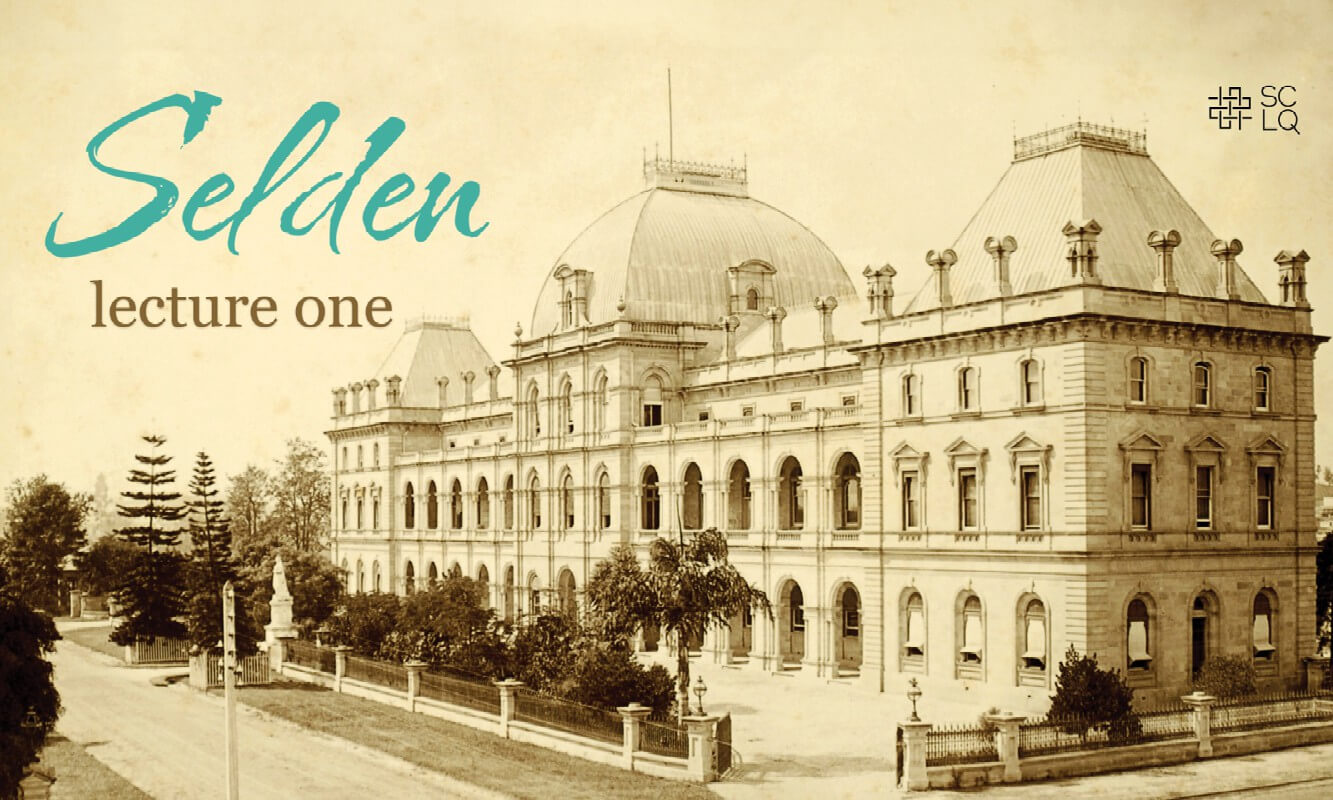On a Saturday afternoon in 1937, Mrs Chester’s seven-year-old boy drowned in a water-filled trench that a careless council had left unfenced.
Justice Evatt wrote, “the irresistible combination of sand and water brought the children in the neighbourhood to play at the side of the pool”.
Mrs Chester, her husband and neighbours spent hours searching for her lost child. Eventually she witnessed his lifeless body being recovered from the trench.
She suffered what the law then called ‘nervous shock’, but today known as post-traumatic stress disorder. The doctor who treated her said:
“Time will heal it to a certain extent, but in her case the scar will be always there to a more extent than in the ordinary case of the ordinary death of a child, owing to the fact of her having seen the body as the boy was taken from the water and the fact that it was a tragic end, also the fact that this boy was a particularly brilliant boy and seemed to be the hope of her family, as she told me.” (emphasis added)
Only one judge on the High Court thought the law gave Mrs Chester a remedy. Justice Evatt’s dissenting judgment is a masterpiece of legal scholarship and writing. It shows an empathetic understanding of Mrs Chester’s inconsolable psychological injury.
His judgment has become accepted as good law. Evatt’s political career has overshadowed his achievement in Chester v Waverley Corporation (1939) 62 CLR 1.
The Brilliant Boy
One of Australia’s finest writers, Gideon Haigh, has just released a book about Chester’s case and Justice Evatt. The Brilliant Boy recovers HV ‘Doc’ Evatt as one of our most compelling and dynamic public figures – in law, politics, history and culture, he was the great agitator against the insular complacency of his era.
Central to Haigh’s portrait of Evatt’s remarkable prime is the case of Max Chester, an immigrant child who drowned in 1937. Evatt’s dissenting judgment marks a critical moment in our law and its approach to psychological trauma.
The seminar on 14 July
The Australian Academy of Law, with the valuable support of the Supreme Court Library Queensland, has arranged an event to explore Chester’s case and its contemporary relevance for the law’s response to psychological trauma.
The event will be held in the Banco Court, 415 George Street starting at 5.30pm on Wednesday 14 July. Registration is essential. The plan is to have both an in-person and online seminar.

The speakers
Gideon Haigh has written more than 40 books, starting with The Battle for BHP. They include true crime works and books about The Office. Geoffrey Blainey describes him as “one of Australia’s most versatile and skilled historians”. His latest book The Brilliant Boy – Doc Evatt and the Great Australian Dissent adds to his achievements.
It explores Evatt’s upbringing and deep understanding of loss as a result of the death of siblings in the First World War. Haigh charts Evatt’s remarkable rise in the legal profession and his appointment to the High Court, as well as the toxic relationships which affected that court in the 1930s.
Those of us who read Chester’s case as law students may not have appreciated that Mrs Chester was a Jewish immigrant or have understood the dynamics of her family. The Brilliant Boy reveals them.
Evatt understood that Mrs Chester was vulnerable to the psychological trauma which any parent whose child is lost, and then found lifeless, would suffer.
Gideon Haigh will speak at the event about Evatt and the judge’s empathy for Mrs Chester’s suffering.
Associate Professor Kylie Burns from Griffith University is a leading torts scholar. Her research and teaching areas include personal injury law, accident compensation systems, and judicial reasoning and cognition. She is a co-author of the leading Australian torts textbook, Torts: Cases and Commentary.
Associate Professor Kylie Burns
Associate Professor Burns will speak about the contemporary relevance of Chester’s case to our legal system’s response to inconsolable psychological trauma.
Evatt’s obvious empathy for Mrs Chester’s suffering raises issues about judicial detachment as well as judicial understanding of the predicament of injured individuals like Mrs Chester.
Recovering Evatt’s finest judgment
Evatt’s remarkable and controversial political career eclipsed in the public sphere his work as a judge in the 1930s. After leaving the court, he became Australia’s External Affairs Minister during World War II.
He was instrumental in the formation of the United Nations and the state of Israel. He argued before the High Court in support of the Chifley Government’s bank nationalisation. He was leader of the Labor Opposition during the height of the Cold War and the Petrov Royal Commission, and when the Democratic Labor Party split from it.
Evatt’s brilliant dissent in Chester is a masterpiece of legal analysis. His approach to the duty of care in ‘nervous shock’ cases became, in time, orthodox and uncontroversial. The Great Dissent is also a remarkable piece of legal writing.
It is fitting that Gideon Haigh, one of Australia’s finest writers and public intellectuals, examines Evatt’s dissent as a piece of persuasive writing.
Inconsolable psychological trauma
The Brilliant Boy is more than an account of Evatt’s career and his great dissent. It is a book about a refugee family and plaintiff lawyers like Abram Landa, who took on deserving cases. It is a book about Mrs Chester’s mind, her hopes for her brilliant boy, Max, and the aftermath of the case that bears this sad woman’s adopted name.
Mrs Chester’s inconsolable psychological trauma makes us think about present-day sufferers of psychiatric injury, ranging from overworked employees, veterans of armed conflicts, emergency workers, refugees, victims of natural disasters and victims of sexual abuse. How should a modern legal system seek to remedy wrongs they suffer and compensate them for their loss?
A feminist judgment?
In The Hidden Gender of Law,Regina Graycar and Jenny Morgan extract a critical passage from Justice Evatt’s dissent:
“But it is necessary to deal at once with an argument which seems to have been accepted by the Full Court. It may be put as follows: A few people— ‘susceptible and emotional mothers’ let us say—would have suffered nervous shock and injury after undergoing an experience similar to that of Mrs Chester. This fact a reasonable person would or might have foreseen. But only persons in such exceptional category would have suffered. Therefore, the defendant’s secondary duty existed only towards those who did not belong to the exceptional category, i.e., only towards the ‘ordinary normal human being’. The non sequitur is easily discernible. So far as the argument rests upon the contention that no other parents would have suffered shock and illness from the ordeal undergone by Mrs Chester, I think this is a mere assertion and is contradicted by all human experience. I think that only ‘the most indurate heart’ could have gone through the experience without serious physical consequences.”
They note that Chief Justice Latham reformulated the duty question by changing the words ‘mother’ and ‘child’ to ‘person’ and ‘another person’. The difference in framing the issue was not an exercise in gender neutrality. It reframed the issue away from one about the loss which a mother might be expected to experience.
Professor Mark Lunney has written that the majority’s finding that nervous shock was not a foreseeable consequence of the defendant’s conduct is “testament to a world in which male stoicism prevailed over female sensibilities”.
He continues:
“…by abstracting the facts to witnessing the dead body of the child, Latham CJ was able to note that ‘it was not a common experience of mankind that the spectacle, even of the sudden and distressing death of a child, produces any consequence of more than a temporary nature in the case of bystanders or even of close relatives who see the body after death has taken place’. One feature of Evatt J’s judgment that made it so powerful was its dismantling of this reasoning, by showing, both from Janet Chester’s evidence and from a more granular approach to the facts, that the plaintiff’s injury was a natural response to the circumstances. Moreover, the response was to be expected from parents, both male and female: ‘plaintiff’s condition of mind and nerve can be completely understood only by parents who have been placed in a similar agony of hope and fear with hope gradually decreasing’.”
A great dissent or simply a great judgment?
Justice Evatt’s judgment in Chester deserves to be recognised as one of the great dissents in the history of the High Court of Australia.
Writing in Great Australian Dissents, Professor Barbara McDonald observes that its “comprehensive treatment of the arguments contrasted sharply with the judgments of the majority”. What marks the judgment as exceptional, according to Professor MacDonald, is Evatt’s use of “strong, empathetic and persuasive language, with support from literature, to describe the natural – and therefore foreseeable – anguished state of the plaintiff as a mother of the lost child”.
You can be the judge. Read Evatt’s dissent and the other judgments.
Better still, join the July 14 seminar by registering for a seat if you can attend in person or by registering to livestream by Zoom:
In-person bookings via Eventbrite; Livestreaming via Zoom.
The newspaper clipping shown comes from M. Lunney’s A History of the Australian Tort Law 1901-1945. It appears on p130. The main image shows author Gideon Haigh and the cover of his book, The Brilliant Boy.
Justice Peter Applegarth AM is a judge of the Supreme Court of Queensland.











Share this article